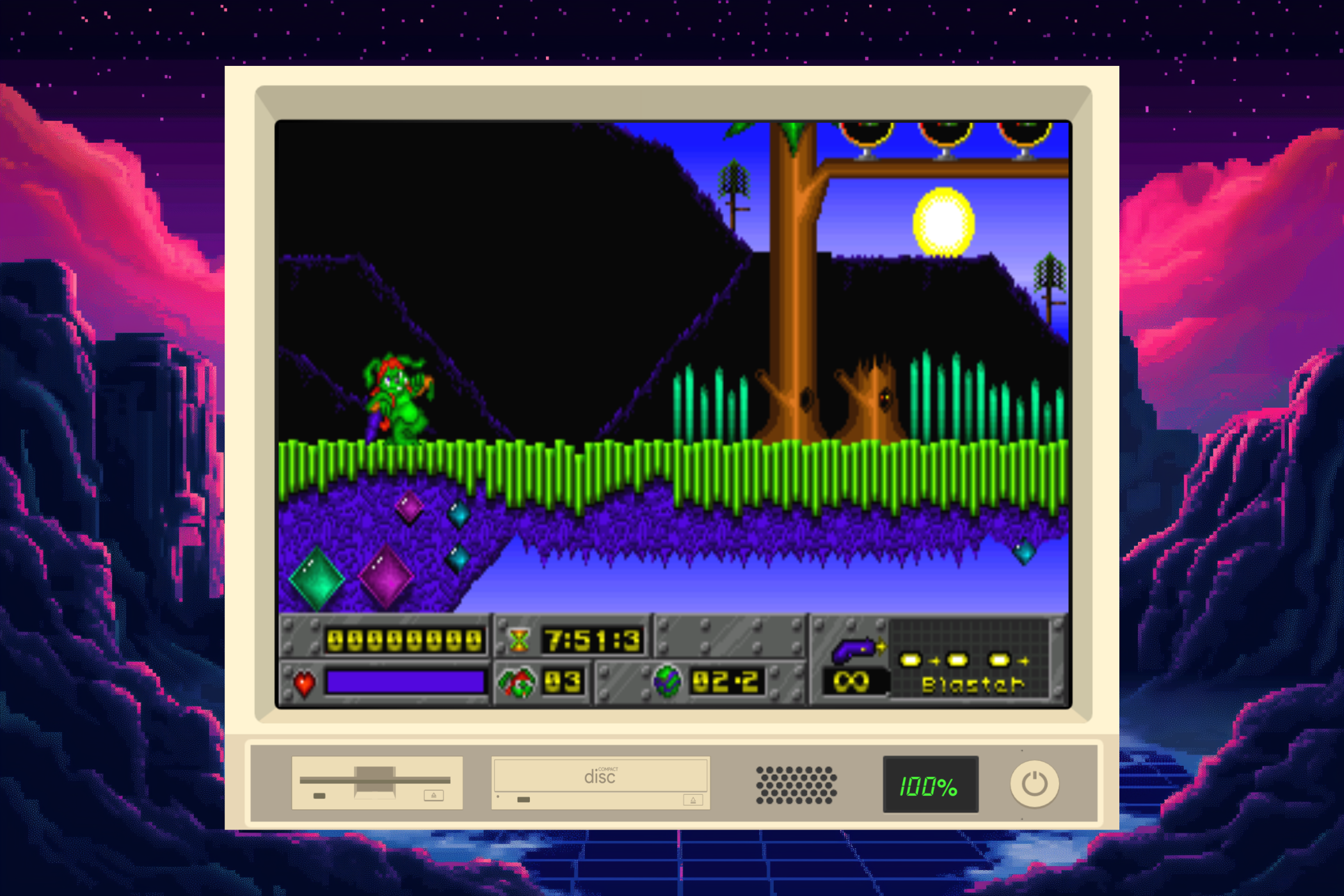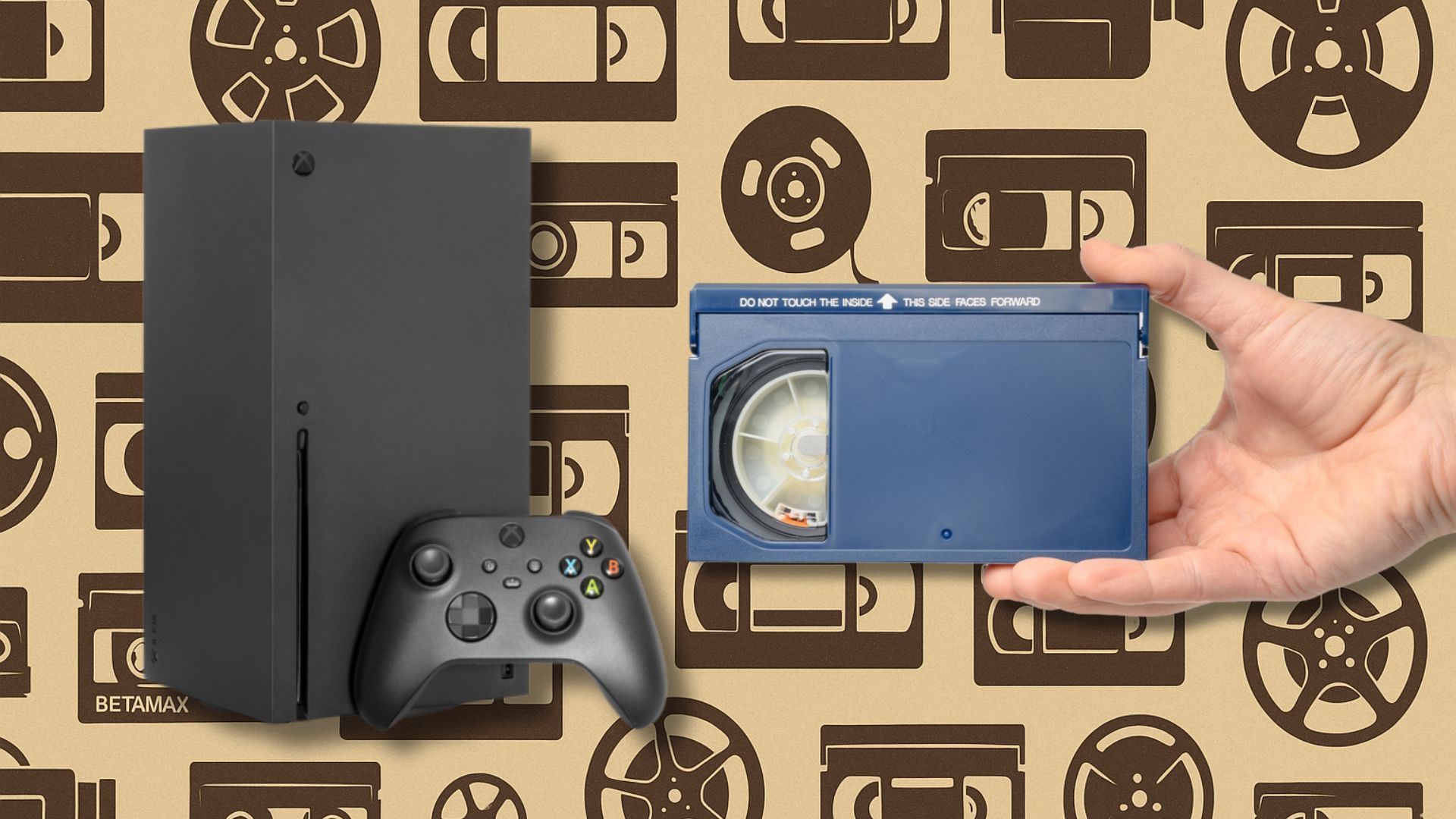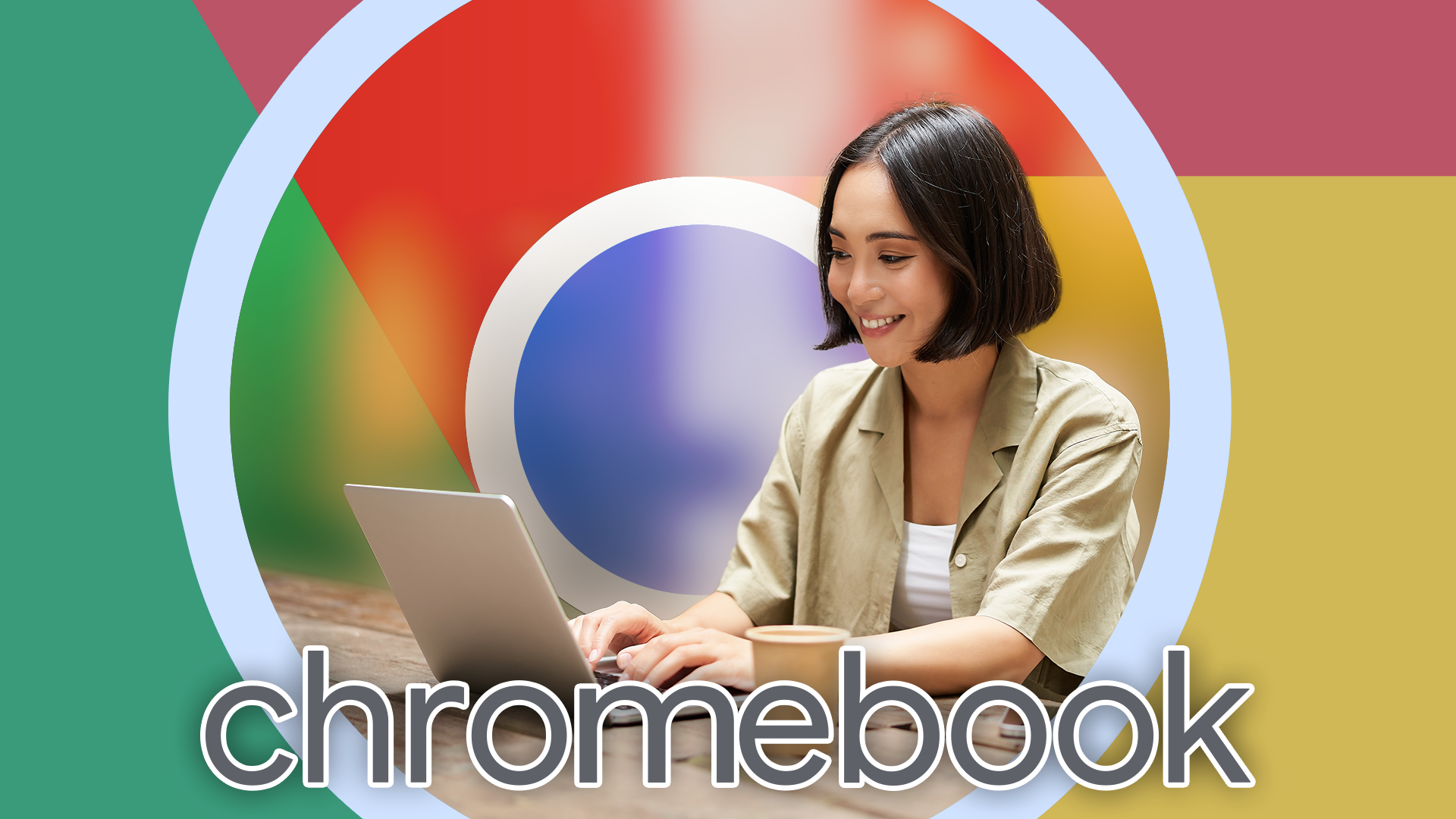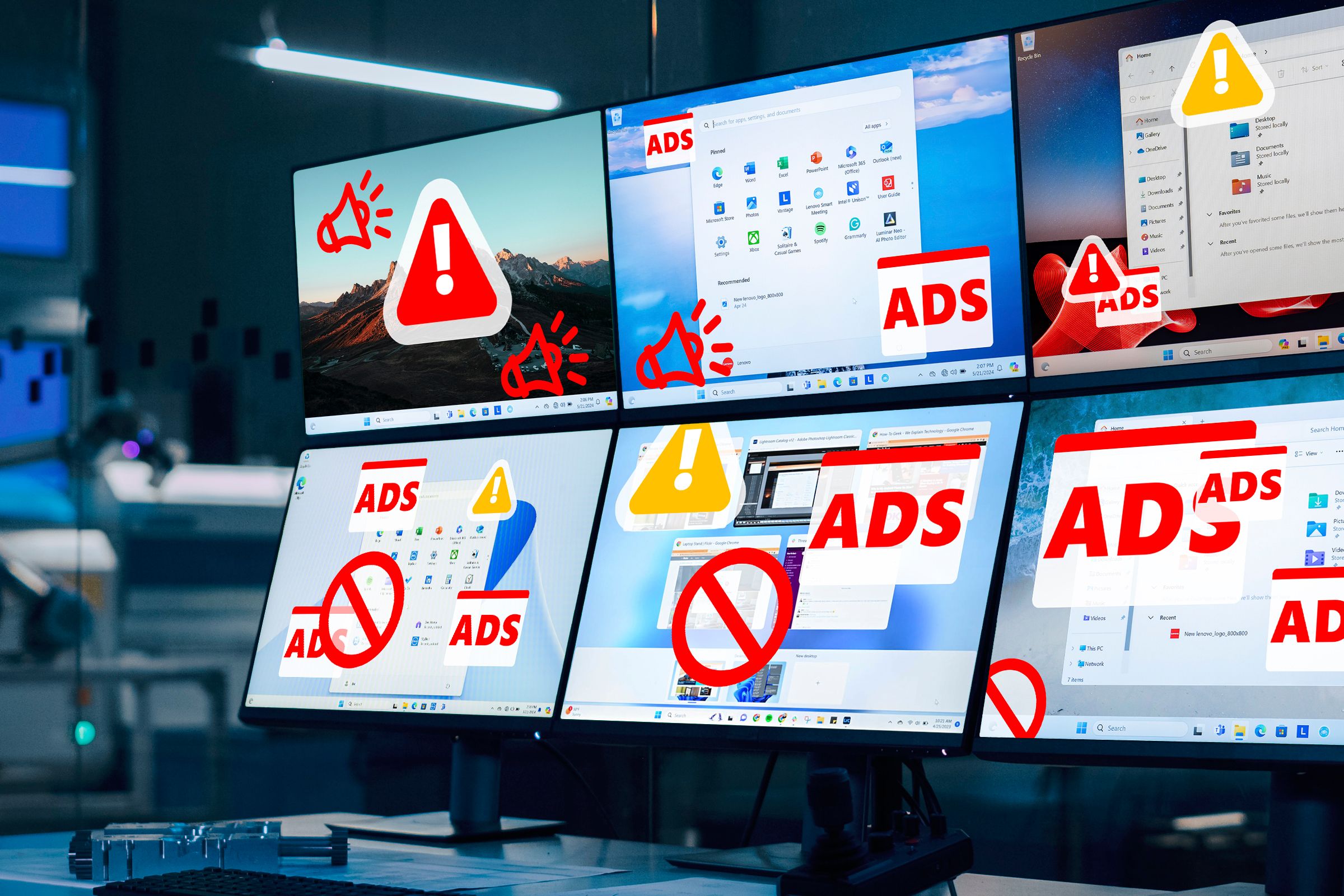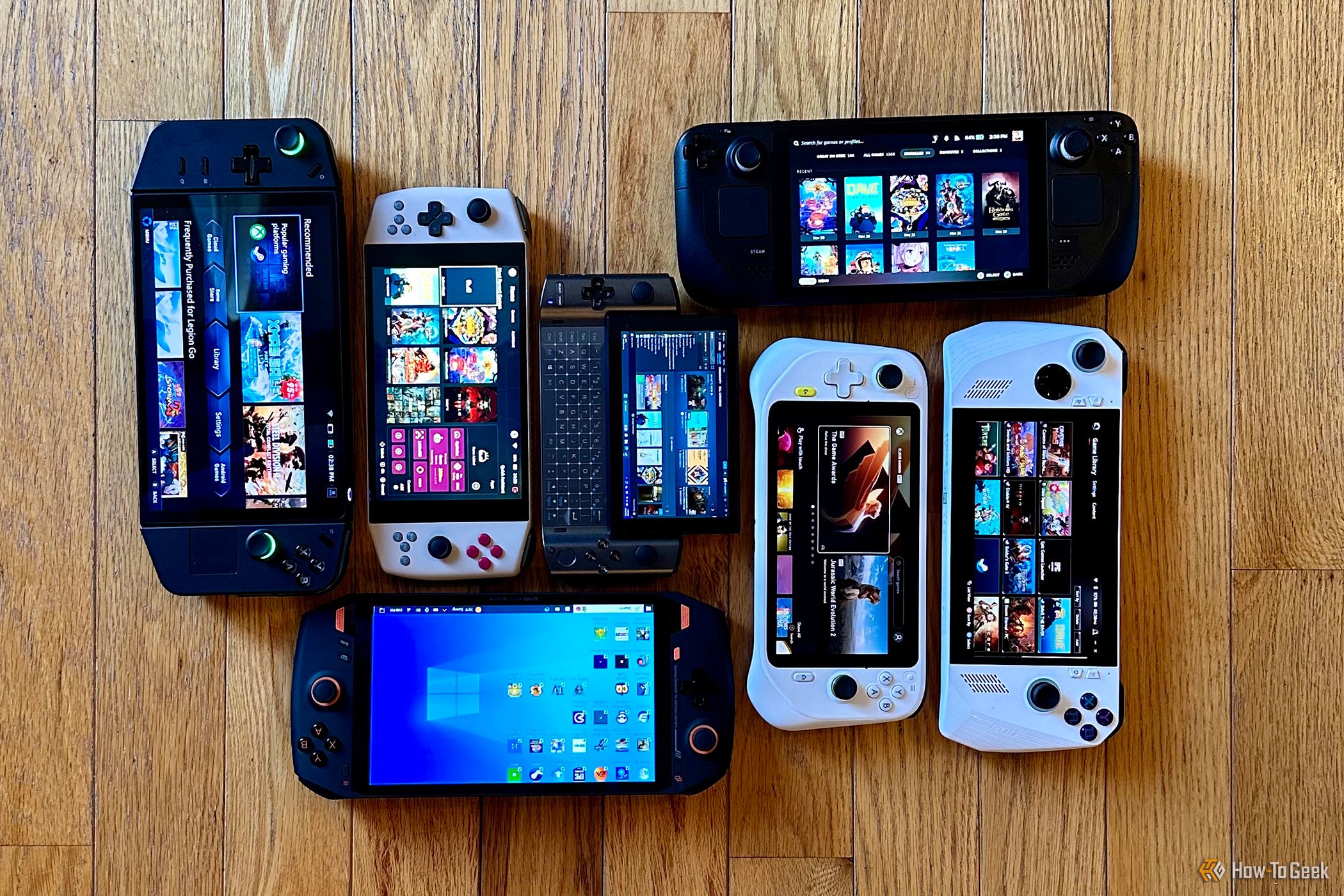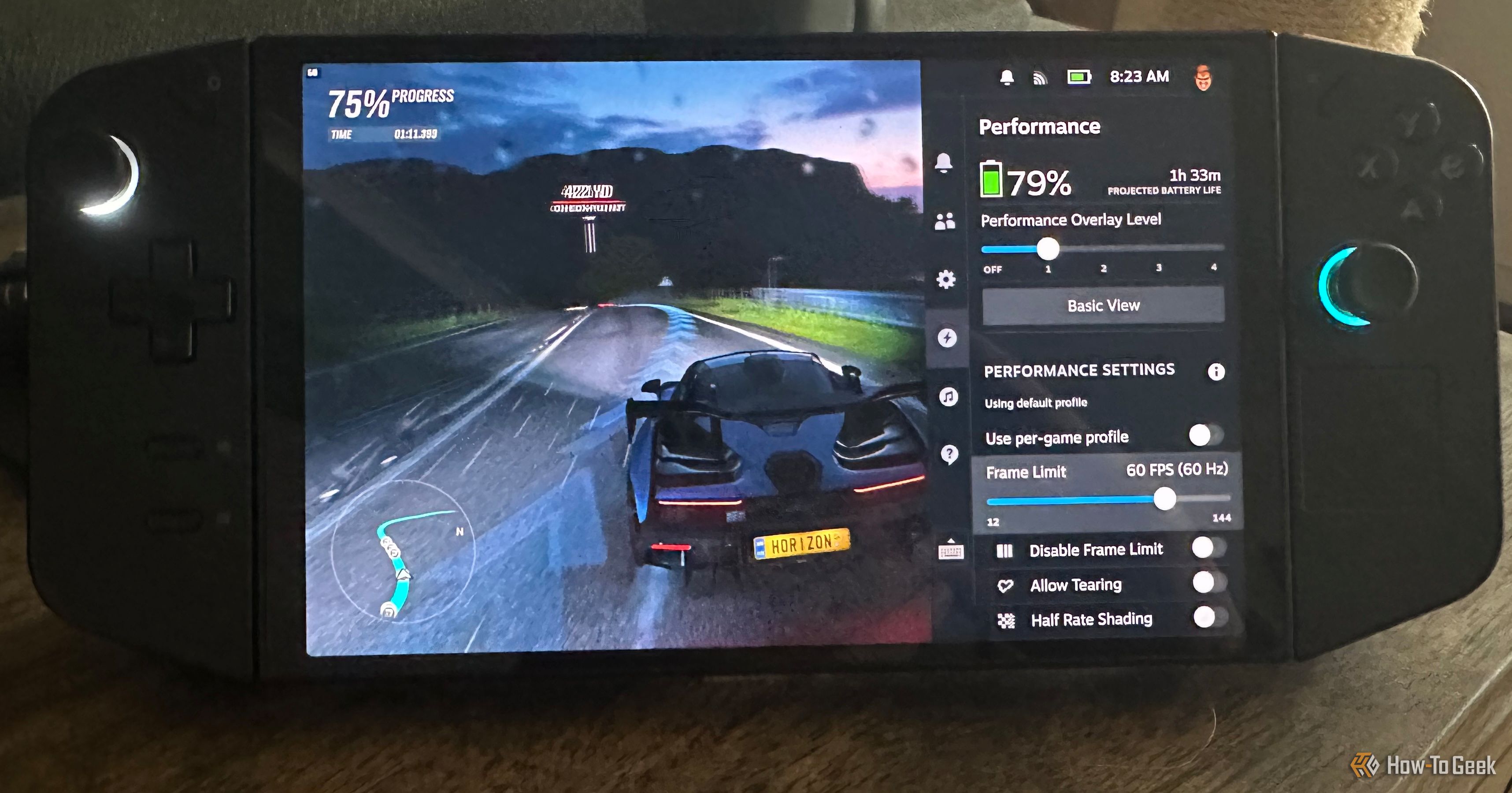Summary
- PC gaming dominance was historically tied to Windows.
- Gaming is Windows’ last stronghold against macOS and Linux.
- SteamOS’s performance could threaten Windows, especially for handheld PCs.
For decades, PC gaming has been synonymous with “Windows”, but that’s been changing for some time now. At first, it was slow, but now things are moving fast. While Windows may still have the dominant market share when it comes to PC gaming, that could change overnight.
The whole notion that a company is “too big to fail” in a market segment has been proven wrong over and over again in history. Just ask companies like Nokia, or former gaming giant Sega. Now, partly through its own mistakes, Microsoft’s Windows operating system is facing serious headwinds in the gaming market for the first time.
DOS and Windows Enjoyed PC Gaming Dominance by Default
Gamers go where the games are, and game developers target operating systems and hardware that have the most gamers. MS-DOS and the IBM PC didn’t become the dominant PC platforms because of video games.
In fact, it was quite the opposite. There was a thriving “microcomputer” gaming scene with systems like the Amiga and Commodore boasting amazing games for home computers. No, thanks to the successful cloning of the IBM PC, affordable computers that could be used for business and education absolutely exploded in popularity, and Microsoft was there, ready to sell you a stack of floppies with MS-DOS, and later a really big stack of floppies with Microsoft Windows. No kidding, I think our Windows 95 installation was about 26 1.44MB floppy disks in total!
So you have this whole gaming industry built up around the fact that people were buying IBM-compatible computers for non-gaming reasons, and this became entrenched to this very day.
Although there are many alternative operating systems that will also work on IBM-compatible PCs, Microsoft has, through a mixture of luck and sharp business sense, kept them all at bay. Today it still enjoys a 71% desktop OS market share.
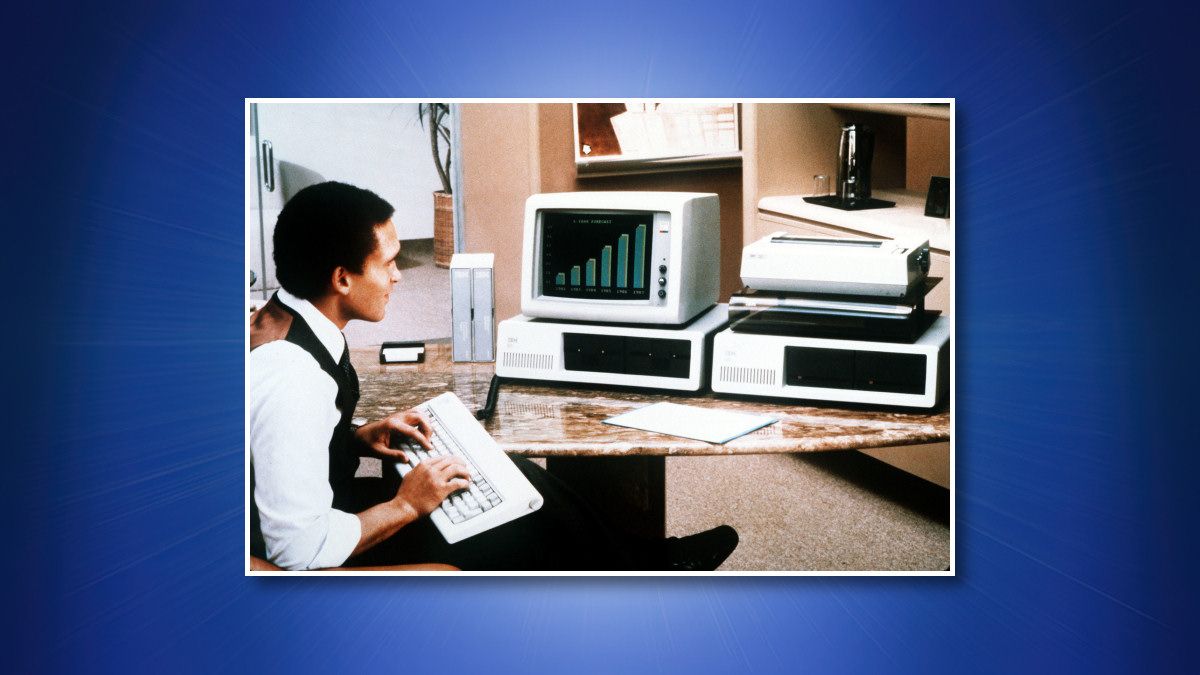
Related
40 Years Later: What Was it Like to Use an IBM PC in 1981?
It’s 1981 and you just bought an IBM PC. Now what?
Gaming Is the Only Advantage Windows Has Left
Even before the Xbox, it’s clear that Microsoft understood the importance of video games as part of the software sales package for computers. People love entertainment, and the idea that you could close your spreadsheets and spend some time playing Age of Empires or Microsoft Flight Simulator on that expensive computer you just bought is very appealing.
Microsoft was creating and publishing video games on PC long before they decided to enter the game console business. Which, looking at the state of Xbox, maybe they should’ve just stuck with the PC—but I digress!
The thing is, while gaming might have just been a nice added extra for Windows PC customers, today it might be the only reason to actually stick with Windows. When it comes to everything else, well, both macOS and Linux can do it all. Even a Chromebook is probably enough for most people. After all, most of what the vast majority of people do all their work and other typical computer stuff inside a browser.
There are some software packages that only work on Windows, but these are usually for niche purposes, so they don’t represent something that the majority of current Windows users need. Besides, there are ways of getting Windows software working on both macOS and Linux, if you really need that one app.
On top of this, popular Linux distros such as Ubuntu now have desktop user experiences that are no worse than Windows. Just minus all the ads, bloatware, and myriad other annoyances.
I’ve heard numerous people over the years say that the only reason they’ve stuck with Windows is for video games. This is the last bastion for reasons someone must use Windows—PC gaming.
Linux and macOS Have Been Working Relentlessly on Gaming
Apple, and the various groups and communities with an interest in Linux, have been working on gaming on these operating systems for years. In the case of macOS, things have really come to a head with the advent of Apple Silicon. With even the lowest-end Apple Silicon Macs capable of console-grade gaming, Apple has worked to encourage game developers to bring titles over to their computers.
To this end, Apple has created a Game Porting Toolkit. It created the Metal API, and introduced features like ray tracing and AI upscaling to bring Macs in line with the lastest gaming consoles and PCs. With macOS now representing 16% of laptop and desktop market, it’s becoming more sensible for game developers to consider a Mac version of newer games, and titles like Assassin’s Creed: Shadows received a rare day-and-date release on macOS alongside all other platforms.
On the Linux side of the fence, there are some native Linux games, but with such a small (6%) share of the laptop and desktop market, it’s rare for developers to bother. Which is why the approach has been to use compatibility layers like WINE (which is also available on macOS).
From left to right: Lenovo Legion Go, AYANEO 2021 Pro, Valve Steam Deck, GPD Win3, Logitech G Cloud, Asus ROG Ally, OneXPlayer 1
In particular, Valve has been a major financial and intellectual support of the Proton project, which has culminated in the Steam Deck and SteamOS. While it was rough going for the first few years, with Proton it’s now possible to play tens of thousands of games meant for Windows on Linux using Proton as a sort of interpreter between the Windows environment the software expects, and the Linux environment it’s in.
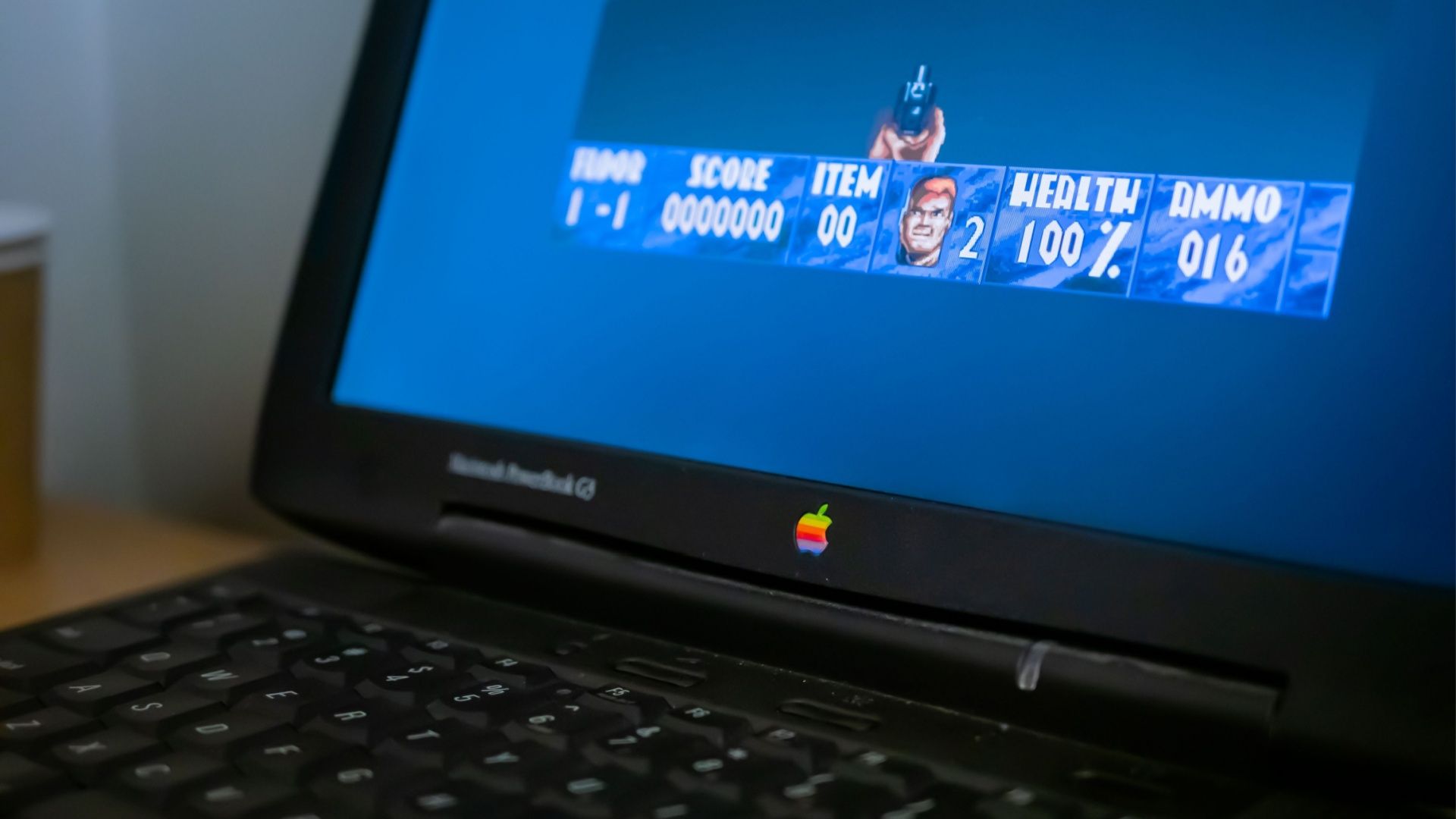
Related
SteamOS Clearly Has Microsoft Worried
While other operating systems are becoming more game friendly, that’s not enough to put Windows’ position in any danger, but there’s a new wrinkle in this story that might change things in the medium term, and it might all be thanks to handheld PCs.
You see, even though the Steam Deck is pretty underpowered as far as gaming PCs go, it’s already developed a reputation for running some games better than on Windows. With less stutter and other quality of life issues, such as poor battery life, non-functional game suspend. functions, and constant updates and other Windows bloat that gets in the way of the whole “pick up and play” purpose of a handheld system.
OK, fine, but that’s one handheld PC that sold relatively small numbers of units. Except, now that SteamOS is available on ASUS and Lenovo handhelds, and will run (albeit unofficially) on some compatible desktops. This means it’s now possible to make exact comparisons between SteamOS and Windows on the same hardware. That’s exactly what Dave2D and numerous other gaming influencers have done—and the results are not good for Windows.
In most cases, a game will run with no stutter, and higher frame rates on SteamOS. That’s despite the additional overhead of Proton! Yes, just a bare metal Windows installation saps up more performance than a whole translation layer between your game and your hardware. Battery life is better, and all those Windows headaches are just gone.
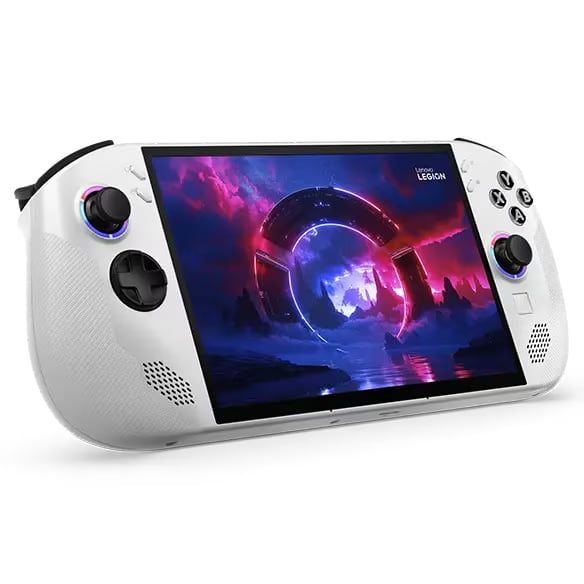
- Dimensions
-
0.89×5.02×11.77in (22.6 x 127.55 x 299mm)
- Playing Time
-
1-5hrs
If you’re looking for a Windows-powered gaming handheld with great ergonomics, the Lenovo Legion Go S is an ultra-comfortable model with an entry-level chipset.
As more people get to try Proton, and as the list of Proton-compatible games becomes longer and longer, Microsoft should start sweating. It seems this might already be happening, since there are rumors the company has paused development on a native Xbox handheld. Instead, the focus will shift to getting Windows 11 into better shape for handhelds, and by extension, all Windows gaming PCs.
Developers Have an Easy Way Out
The existence of Apple’s porting kit, and of Proton on Linux, gives developers a cost-effective way to make their games available on more than just Windows. Proton, in particular, has suddenly given a whole new customer base access to games without developers having to lift a finger. In reaction, we’ve seen games get special Steam Deck modes, and even games that have compatibility issues with Proton have those issues addressed by developers.
I can totally see future games being tested on Proton during development to ensure compatibility. This will be easier than trying to get a finished title to work with Proton. Of course, Proton’s development itself continues, and every month more an more titles are being added. So the massive PC backlog of games will also slowly enter the fold.
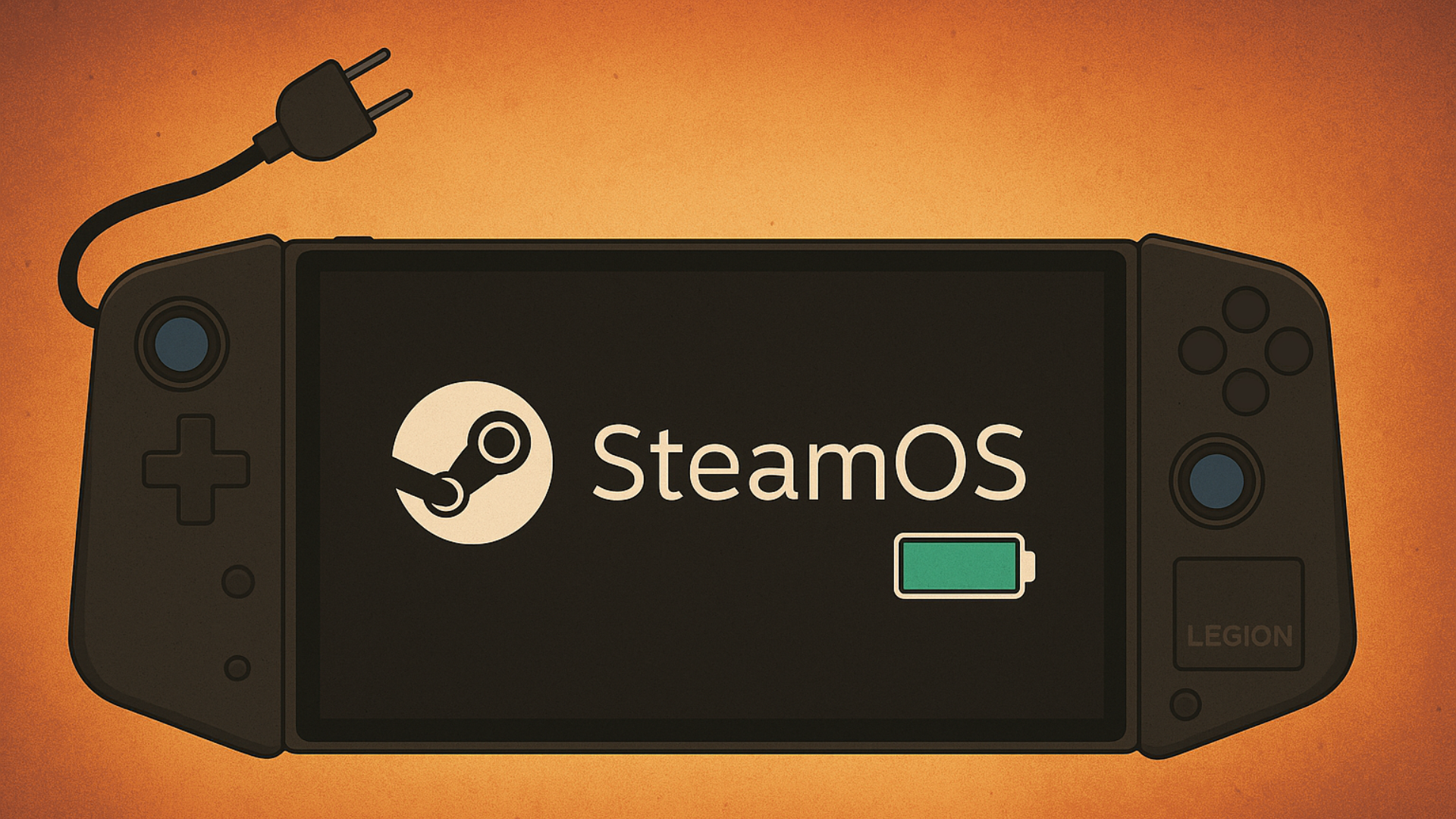
Related
SteamOS Gave My Legion GO the Battery Life It’s Always Deserved
Finally I’m free of Windows’ hunger for power.
This Could Be the Beginning of the End
Ultimately, I can see a future where Proton and SteamOS convince more and more PC gamers to switch over from Windows, until we get to a point where the Linux slice of the PC gaming market is large enough to justify a native Linux version as a matter of course.
Once that happens, PC gamers will have little reason to hang on to Windows, and the rate at which this situation is becoming possible is happening at a deceptive speed.

